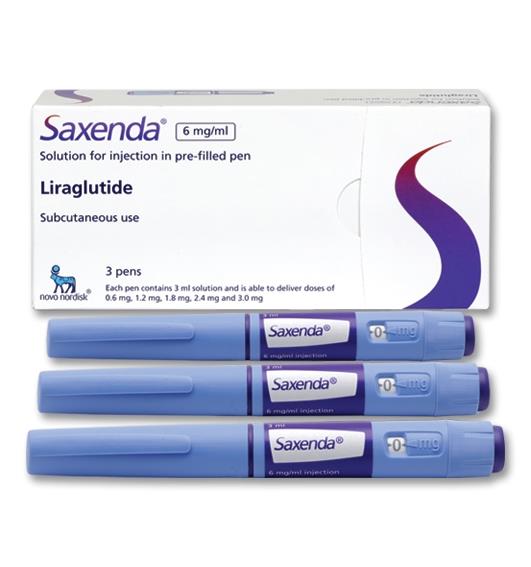The Ultimate Guide to Weight Loss Injections
Are you ready to embark on a journey towards a healthier and happier you? Look no further because "The Ultimate Guide to Weight Loss Injections" is here to provide you with all the essential information you need to know. Whether you're curious about the benefits, concerned about safety, or simply looking for an effective solution to shed those extra pounds, this comprehensive guide will be your trusted companion. Get ready to explore the world of weight loss injections and discover how they can help you achieve your desired body goals. Get ready to transform your life!
Understanding Weight Loss Injections
Trying to lose weight can be a challenging journey, and sometimes, it can feel like no matter how hard you try, the pounds just won't come off. That's where weight loss injections come into play. These injections have gained popularity in recent years as a potential solution for individuals struggling with weight loss. In this comprehensive guide, we will explore the different types of weight loss injections, how they work, their effectiveness, and everything else you need to know to make an informed decision about using them as a tool on your weight loss journey.
Different Types of Weight Loss Injections
When it comes to weight loss injections, there are various options available in the market. Three of the most common types include HCG injections, B12 injections, and Liraglutide injections. Each injection works in a different way, targeting various aspects of weight loss. Understanding the differences between these injections can help you choose the one that aligns best with your specific needs and goals.
How Weight Loss Injections Work
Weight loss injections work by utilizing different mechanisms to aid in the weight loss process. For example, HCG injections work by suppressing appetite and increasing metabolism. B12 injections, on the other hand, help boost metabolism and energy levels. Liraglutide injections work by mimicking the effects of a hormone called GLP-1, which helps regulate appetite and reduce food intake. Understanding how these injections work can give you insight into how they may benefit your weight loss efforts.
Effectiveness of Weight Loss Injections
The effectiveness of weight loss injections can vary from person to person, depending on several factors. While some individuals may experience significant weight loss with the help of injections, others may not see the same results. It's important to understand that weight loss injections are not a magical solution, and they work best when used in conjunction with a healthy diet, regular exercise, and behavioral therapy. It is crucial to set realistic expectations and combine injections with other strategies for optimal results.
Choosing the Right Weight Loss Injection
Before embarking on weight loss injections, it is essential to consult with a healthcare professional who can guide you through the process. They will take into account your personal health history, any underlying conditions, and your specific weight loss goals to help determine the most suitable injection for you. It's important to remember that what works for one person may not work for another, so individualized advice is crucial in making the right choice.
Consulting a Healthcare Professional
When it comes to weight loss injections, it's vital to consult a healthcare professional who specializes in weight management or a licensed medical practitioner who is knowledgeable about these injections. They will assess your overall health and provide personalized advice based on your specific needs. Their expertise will help determine whether weight loss injections are a suitable option for you or if there are any potential contraindications to consider.
Considering Personal Health and Needs
In addition to consulting a healthcare professional, it's important to reflect on your personal health and needs when choosing a weight loss injection. Consider any underlying medical conditions, allergies, or medications you are currently taking. Some weight loss injections may not be suitable for individuals with certain health conditions or allergies. By taking your individual health into account, you can ensure the safety and effectiveness of the chosen injection.
Common Weight Loss Injections
Let's take a closer look at three of the most common weight loss injections available: HCG injections, B12 injections, and Liraglutide injections. Understanding the key characteristics and benefits of each injection can help you make an informed decision about which one might be right for you.
HCG Injections
HCG injections contain the hormone human chorionic gonadotropin, which is naturally produced during pregnancy. These injections work by suppressing appetite and stimulating the release of stored fat to be used as energy. HCG injections are typically paired with a low-calorie diet to promote weight loss. However, it's important to note that the FDA has not approved HCG injections for weight loss, and there is limited scientific evidence supporting their efficacy.
B12 Injections
B12 injections involve administering vitamin B12 directly into the muscle. Vitamin B12 plays a crucial role in metabolism and energy production. These injections are often used to address deficiencies and improve overall energy levels. While B12 injections alone may not directly cause weight loss, they can potentially boost metabolism and energy, which may indirectly support weight loss efforts.
Liraglutide Injections
Liraglutide injections belong to a class of medications known as GLP-1 receptor agonists. These injections work by mimicking the effects of a hormone called GLP-1, which helps regulate blood sugar levels, appetite, and food intake. Liraglutide injections are typically prescribed to individuals with type 2 diabetes, but they have also been found to be effective in promoting weight loss. These injections can help control appetite, reduce calorie intake, and lead to significant weight loss over time.
Benefits of Weight Loss Injections
Weight loss injections offer several potential benefits for individuals on their weight loss journey. Here are some of the key advantages you may experience when using weight loss injections as part of your overall strategy.
Stimulating Fat Loss
Certain weight loss injections, such as HCG injections, work by stimulating the release of stored fat as an energy source. This can lead to a decrease in overall body fat and contribute to weight loss. By targeting fat stores, these injections can help shape and tone the body, leading to a more desirable physique.
Boosting Metabolism
Some weight loss injections, like B12 injections, have the potential to boost metabolism. A faster metabolism means your body can burn calories more efficiently, even at rest. This increased metabolic rate can support weight loss efforts by helping your body burn more calories throughout the day.
Suppressing Appetite
One of the primary benefits of weight loss injections, such as Liraglutide injections, is their ability to suppress appetite. By reducing feelings of hunger, these injections can help you adhere to a calorie-restricted diet more effectively. This can prevent overeating and contribute to weight loss by creating a calorie deficit.
Increasing Energy Levels
Weight loss injections that contain vitamin B12, like B12 injections, can help increase energy levels. This can be especially beneficial during weight loss when individuals may experience fatigue or a lack of motivation. Higher energy levels can help you stay active and maintain a regular exercise routine, further supporting your weight loss goals.

Potential Side Effects of Weight Loss Injections
While weight loss injections can be effective tools on your weight loss journey, it's crucial to consider and be aware of potential side effects. Here are some common side effects associated with weight loss injections:
Injection Site Reactions
Injection site reactions, such as redness, swelling, or pain at the injection site, are common side effects of weight loss injections. These reactions are usually mild and temporary and should subside on their own.
Nausea and Vomiting
Some individuals may experience nausea and vomiting as a side effect of weight loss injections, particularly with Liraglutide injections. If these symptoms persist or worsen, it is important to consult with your healthcare professional for further guidance.
Headaches
Headaches can occur as a side effect of weight loss injections, especially during the initial stages as your body adjusts to the injection. Staying hydrated and managing stress levels may help alleviate or minimize headaches.
Digestive Issues
Weight loss injections, especially those containing GLP-1 agonists like Liraglutide, may cause digestive issues, including diarrhea and constipation. If these symptoms become severe or persistent, it's essential to seek medical advice.
Preparing for Weight Loss Injections
Before starting weight loss injections, it is crucial to prepare yourself both physically and mentally. Here are some important steps to take to ensure a smooth and successful injection process.
Finding a Qualified Healthcare Provider
Finding a qualified healthcare provider who specializes in weight management or weight loss injections is essential. They will guide you through the entire process, including selecting the appropriate injection, providing necessary instructions, and monitoring your progress.
Understanding the Injection Process
Take the time to fully understand the injection process, including the equipment required, proper injection technique, and recommended injection sites. It's important to follow the instructions provided by your healthcare professional to ensure safety and effectiveness.
Following Pre-Injection Instructions
Your healthcare professional will provide specific pre-injection instructions that you should follow diligently. These instructions may include fasting requirements, medication adjustments, or other preparations necessary to optimize the effects of the injection.
What to Expect During and After Weight Loss Injections
Understanding what to expect during and after weight loss injections can help alleviate any concerns or anxieties you may have. Let's take a closer look at these different stages.
Injection Administration
During the injection administration, your healthcare professional will guide you through the process. They will select an appropriate injection site, clean the area, and administer the injection. The process is usually quick and relatively painless.
Monitoring and Follow-Up Care
After receiving weight loss injections, your healthcare professional may monitor your progress and provide follow-up care to assess the effectiveness of the injection and address any concerns you may have. Regular check-ins can help ensure you are on the right track and provide an opportunity to make any necessary adjustments.
Managing Side Effects
If you experience any side effects from the weight loss injections, it's important to communicate them to your healthcare professional. They can provide guidance on managing these side effects or adjust your treatment plan if necessary. Open communication is key to ensure your safety and comfort throughout the process.
Combining Weight Loss Injections with Other Strategies
While weight loss injections can be a helpful tool, they are most effective when used in conjunction with other strategies. Here are some additional strategies to consider incorporating into your weight loss journey:
Healthy Diet Plan
A healthy diet plan is crucial for achieving sustainable weight loss. Focus on consuming a balanced diet rich in fruits, vegetables, lean proteins, and whole grains. Avoid excessive intake of processed foods, sugary beverages, and high-fat snacks. Consulting a registered dietitian can provide personalized guidance and support.
Regular Exercise Routine
Regular exercise is essential for overall health and weight management. Aim for a combination of cardiovascular exercises, strength training, and flexibility exercises. Start gradually and gradually increase intensity and duration as your fitness level improves. It's important to find activities you enjoy to maintain long-term adherence.
Behavioral Therapy
Behavioral therapy can help address the underlying psychological factors that may contribute to weight gain or hinder weight loss efforts. Working with a therapist or counselor can provide valuable tools and strategies for managing emotional eating, stress, and other behavioral patterns that may affect your weight loss journey.
Costs and Insurance Coverage
When considering weight loss injections, it's important to factor in the associated costs. The cost of weight loss injections can vary depending on the specific injection, dosage, and healthcare provider. It's recommended to consult with your healthcare professional or insurance provider to determine if weight loss injections are covered by your insurance plan and what out-of-pocket expenses you may incur.
Conclusion
Weight loss injections can serve as an additional tool to support your weight loss efforts. By understanding the different types of injections, their mechanisms of action, potential side effects, and how to combine them with other strategies, you can make an informed decision about incorporating them into your weight loss journey. Remember to consult a healthcare professional, consider your personal health and needs, and approach weight loss as a holistic lifestyle change rather than a quick fix. With dedication, patience, and a comprehensive approach, you can achieve your weight loss goals and improve your overall well-being.






